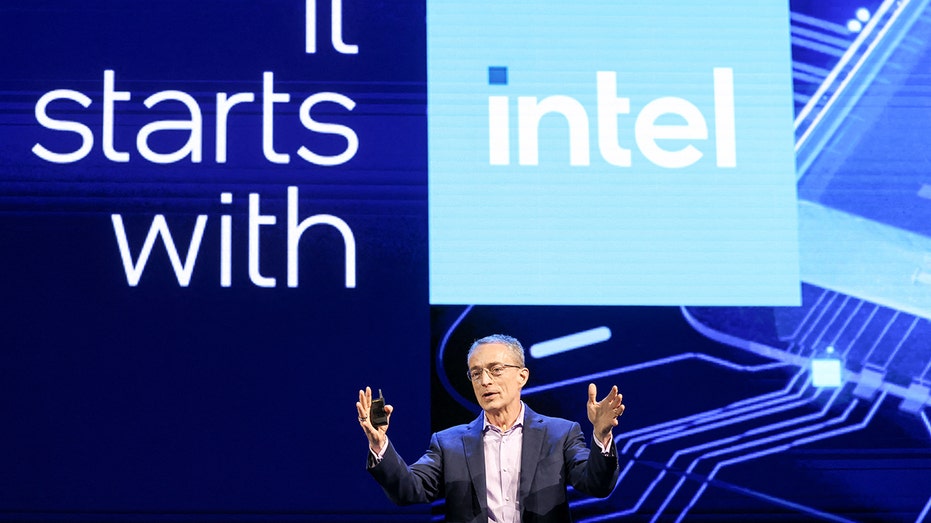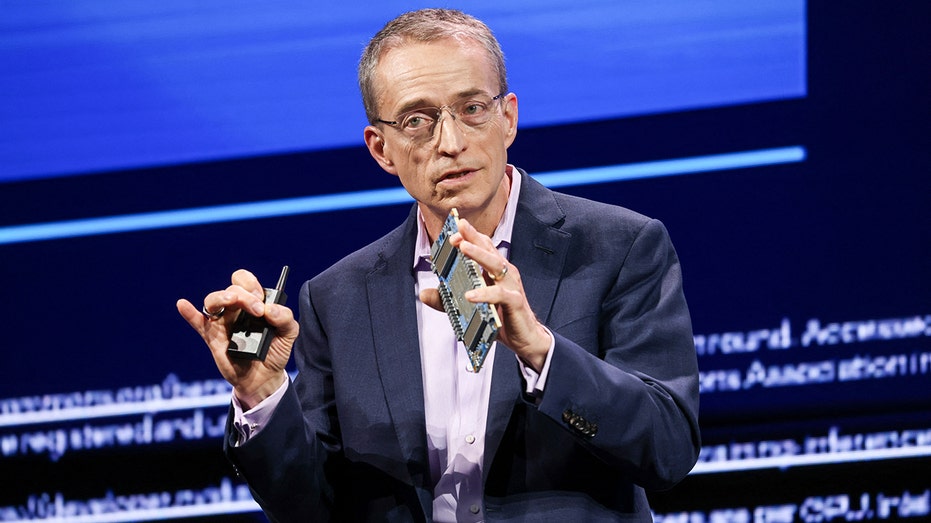Intel CEO Pat Gelsinger retires as chipmaker struggles
Gelsinger stepped down as CEO on Sunday
Intel Corp. on Monday announced that CEO Pat Gelsinger has retired as one of the world's largest semiconductor chip manufacturers faces challenges in the highly competitive sector.
Gelsinger, who spent three decades at Intel, stepped down as CEO and from the board of directors on Sunday after leading the company for less than four years. His departure comes before the company completed a four-year turnaround plan to gain an edge over rivals Nvidia and Taiwan Semiconductor Manufacturing Co.
"While we have made significant progress in regaining manufacturing competitiveness and building the capabilities to be a world-class foundry, we know that we have much more work to do at the company and are committed to restoring investor confidence," Frank Yeary, independent chair of the board of Intel, said in a statement.
BIDEN ADMIN REDUCING INTEL CHIP GRANT BELOW $8B: REPORTS
Two senior leaders, David Zinsner and Michelle Johnston Holthaus, will serve as interim co-CEOs while the board conducts a search for a new chief executive, which has already begun. The company said it has already formed a search committee "and will work diligently and expeditiously" to find Gelsinger's permanent replacement.

Intel CEO Pat Gelsinger delivers a speech at Taipei Nangang Exhibition Center during Computex 2024, in Taipei on June 4, 2024. ( I-HWA CHENG/AFP via Getty Images) / Getty Images)
Yeary will become interim executive chair during the period of transition.
Shares of the chipmaker rose during morning trading following the announcement.
INTEL'S FINANCIAL STRUGGLES THREATEN BIDEN ADMIN CHIP STRATEGY
Just last week, the Biden administration trimmed the amount of federal grant funding Intel was originally anticipated to receive from the CHIPS and Science Act.
Intel
The Commerce Department awarded Intel Corporation up to $7.86 billion in direct funding under the CHIPS Incentives Program’s Funding Opportunity for Commercial Fabrication Facilities. That's down from the $8.5 billion in grants for its commercial semiconductor projects in Arizona, New Mexico, Ohio and Oregon that the Commerce Department first proposed.
The company had been expected to be the chief beneficiary of the tens of billions in taxpayer subsidies allocated under the bipartisan CHIPS Act passed two years ago.
GET FOX BUSINESS ON THE GO BY CLICKING HERE

Intel CEO Pat Gelsinger delivers a speech at Taipei Nangang Exhibition Center during Computex 2024, in Taipei on June 4, 2024. (I-HWA CHENG/AFP via Getty Images) / Getty Images)
The adjustment was reportedly made after Intel won a $3 billion contract in September to supply semiconductors for the U.S. military.
Instead of creating the jobs promised under the policy, it slashed its workforce by 15% in August.
In announcing the layoffs, Gelsinger said the company's revenue had not grown as expected and that Intel had "yet to fully benefit from powerful trends, like AI."
"Our costs are too high, our margins are too low. We need bolder actions to address both – particularly given our financial results and outlook for the second half of 2024, which is tougher than previously expected," he continued.
FOX Business' Breck Dumas and Reuters contributed to this report.





















